
The World Happiness Report, and much of the growing international interest in happiness, as documented in Chapter 3, exists thanks to Bhutan. They sponsored Resolution 65/309, “Happiness: Towards a holistic approach to development,” adopted by the General Assembly of the United Nations on 19 July 2011, inviting national governments to “give more importance to happiness and well-being in determining how to achieve and measure social and economic development.”
Foreword, The World Hapiness Report 2022
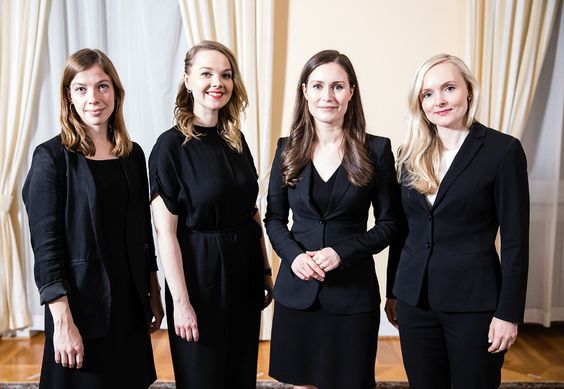
Group picture of the recently appointed Finnish Government Ministers under Prime Minister Sanna Marin.
©Laura Kotila/Valtioneuvoston kanslia
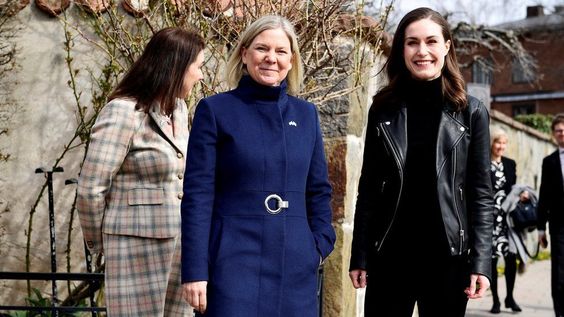
Benjamin Radcliff, University of Notre Dame
Human beings are social animals. This means, almost as a matter of logical necessity, that the quality of their societies largely decides humans’ quality of life.
Trust is one key factor that helps shape societies – specifically, if individuals feel a basic level of trust in others outside of their immediate friends and family, they are happier.
People lead better, happier, and more satisfying lives when people in their communities share high levels of trust.
Finland is the happiest country in the world, for the fifth year in a row, according to the latest annual United Nations World Happiness Report, released in April 2022. The report uses data from Gallup world polls and measures the way people feel about their lives. It is not a coincidence that Finland also has one of the world’s highest levels of trust among people, known as interpersonal trust.
“Research has linked trust with economic growth, democracy, tolerance, charity, community, health, and happiness,” Lane Kenworthy, a political scientist and sociologist, writes.
As a scholar of happiness, I have written extensively about the nature and causes of happiness. My work, and research by others, confirms the general idea that greater levels of trust among people lead to more happiness.
There are specific reasons trust and happiness are so deeply connected.
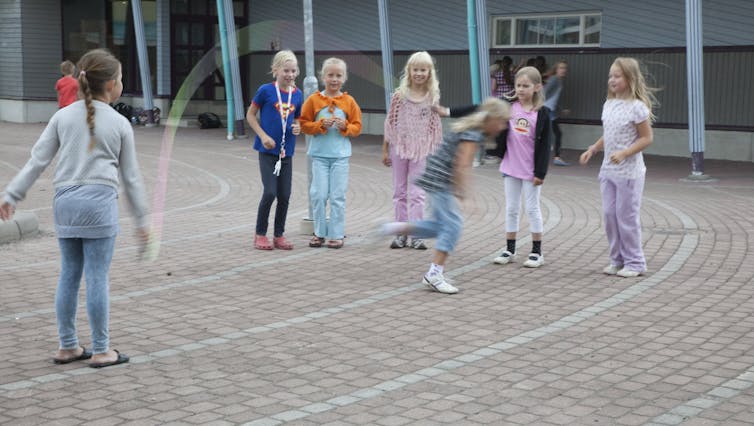
Fishman/ullstein bild via Getty Images
How trust encourages happiness
The first reason is that people’s quality of life improves when they can reasonably assume the goodwill of others in their day-to-day lives. This kind of generalized trust may also promote other, more specific kinds of trust, such as trust in government.
In Finland, trust in other people – and in public institutions – is exceptionally high. In 2019, Finnish people reported high levels of trust in police, the government, and one another.
Only 2.8% of people reported that crime was a major worry, demonstrating a lack of concern about trusting other people.
Denmark, Iceland, Switzerland, and the Netherlands followed Finland as the happiest countries in 2021, according to this analysis. Like Finland, these countries have extremely high levels of both trust and happiness.
In a high-trust environment, people go about their lives with the easy assurance that others around them are generally honest and even benevolent. These sorts of strong human connections have been shown to promote happiness.
By comparison, in a low-trust environment, people are suspicious. They feel they must always be on guard, in case other people attempt to deceive, exploit or take advantage of them.
Afghanistan ranked as the least happy country in the 2022 World Happiness Report.
In 2019, two years before the Taliban overtook the country, Afghans reported feeling low satisfaction with public services like water quality, roads, health care, and education. Most of those surveyed in Afghanistan also said in a 2019 Gallup world poll that corruption in government and business was endemic.
It takes no great insight to understand why high-trust societies tend to be happier than places where trust is low. People find it easier to build or strengthen connections with others when they generally trust everyone, from their acquaintances to their spouses.
Emotional energy
Trust also promotes happiness in more subtle ways.
Everyone has a limited amount of emotional energy. The more trusting a society is, the fewer emotional resources we must devote to everyday interactions. The less someone has to worry about being pickpocketed, for example, the more emotional energy they have available to spend time nurturing relationships with family, friends, co-workers, and neighbors.
Research has shown that investment in the community and these kinds of relationships is likely to pay off in the form of a happier life.
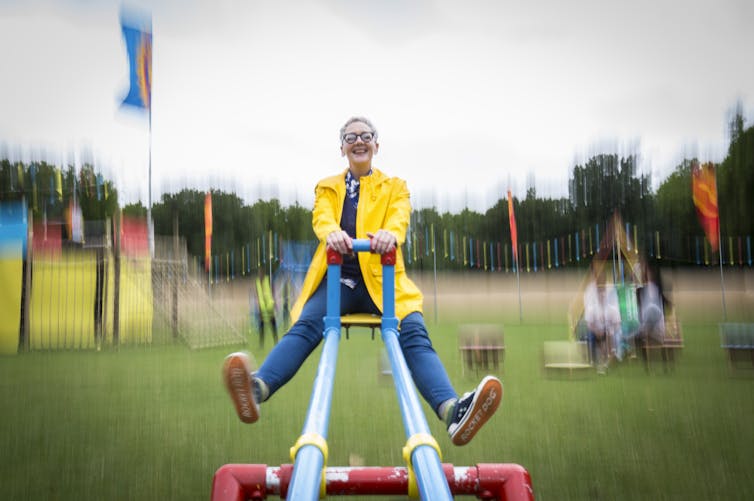
John Phillips/Getty Images
Equality matters
Finally, it is also important to consider how happiness is distributed among individuals across society. This is known as happiness equality.
Evidence strongly suggests that lower levels of happiness inequality within a society promote higher levels of average life satisfaction. The more equal a society’s distribution of happiness, the happier people tend to be.
So if more trust produces more happiness equality, and more happiness equality means higher levels of happiness itself, then trust should, once again, promote greater happiness.
A variety of factors are at work behind this connection. The most obvious one, perhaps, is that people generally care about the well-being of others.
Efforts to reduce inequality of happiness are likely to raise happiness for all.
This dynamic creates a cycle – the more we take the happiness of others into consideration, the more we appreciate life.
Benjamin Radcliff, Professor of Political Science, University of Notre Dame
This article is republished from The Conversation under a Creative Commons license. Read the original article.



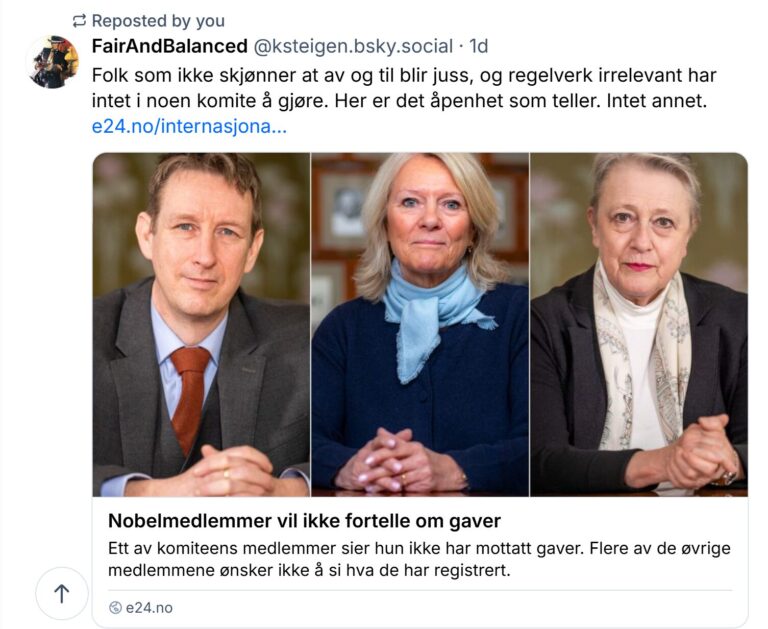
17 Comments
Pingback: Why Finland is the happiest country in the world for the past six years - Bergensia
Pingback: xo666
Pingback: bacon999
Pingback: psilocybin mushroom grow bags
Pingback: หวยออมสิน
Pingback: ร้านแว่น สุขุมวิท
Pingback: ทางเข้าเล่น jili slots
Pingback: รับสร้างบ้านหาดใหญ่
Pingback: gunpowder
Pingback: a knockout post
Pingback: nutritional supplements
Pingback: hunting rifles for sale
Pingback: lost mary vapes for sale
Pingback: ปริ้นแผ่นพับ
Pingback: Games Global มีผลิตภัณฑ์ทั้งหมด
Pingback: league88
Pingback: ชุดกระชับสัดส่วน